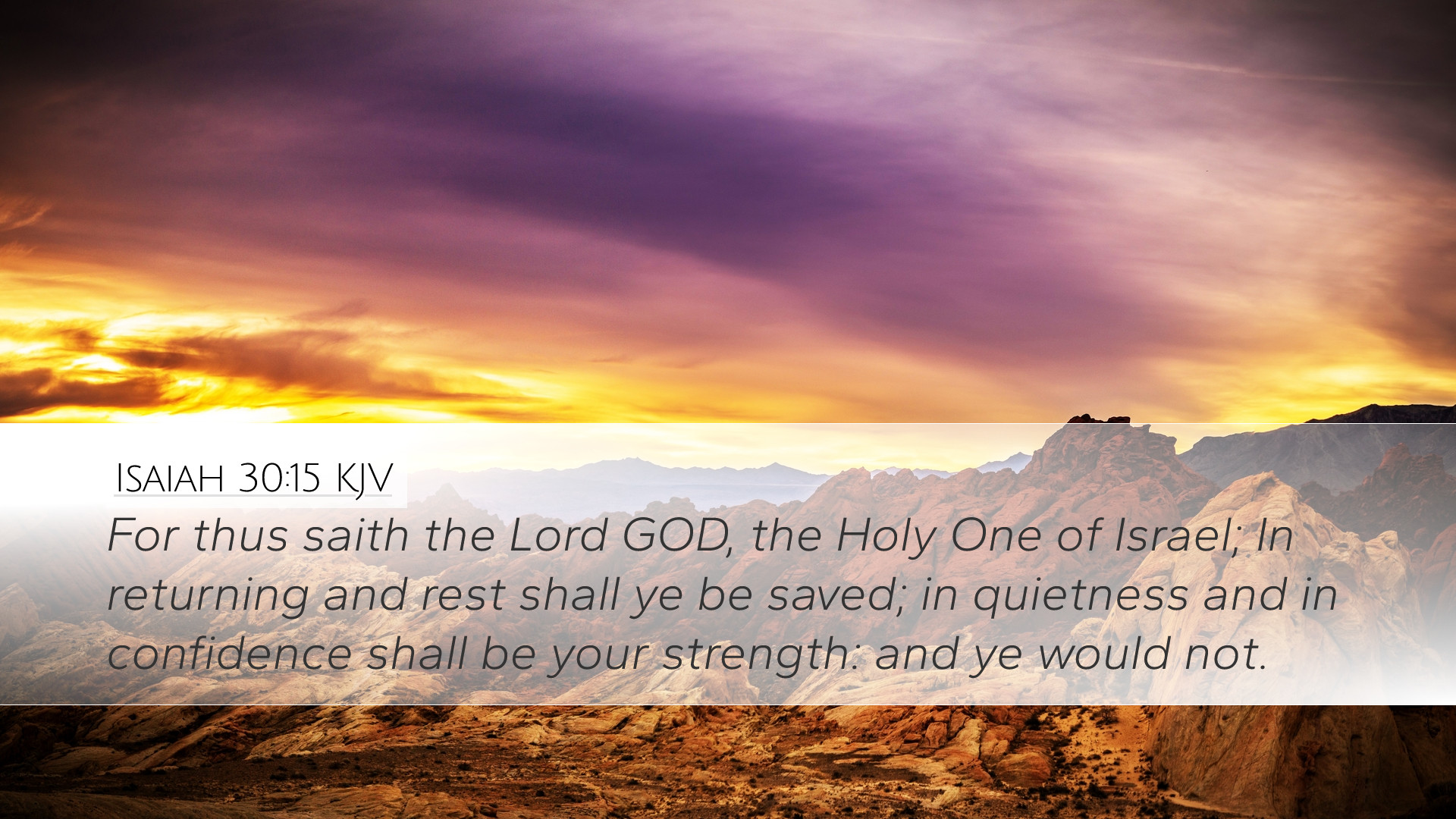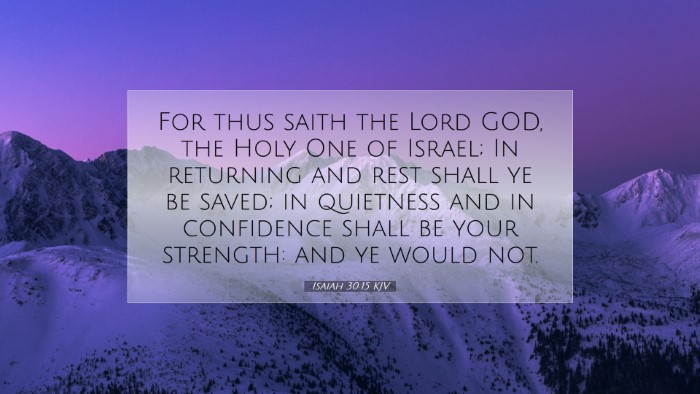Commentary on Isaiah 30:15
In Isaiah 30:15, the Lord speaks directly to His people about the nature of true rest and strength found in Him. The verse reads:
"For thus said the Lord God, the Holy One of Israel: 'In returning and rest you shall be saved; in quietness and in trust shall be your strength.' But you were unwilling."
Contextual Analysis
This verse provides critical insights into Israel's reliance on human means rather than divine assistance during a time of distress. A careful examination of the context reveals that the people were looking towards Egypt for help against Assyria, demonstrating a fundamental misunderstanding of where true hope and strength reside.
The Divine Call to Rest
Matthew Henry emphasizes that the invitation to "returning and rest" signifies a spiritual turning back to God. It indicates a cessation from worldly strategies and an embracing of divine providence. The promise of salvation through rest underscores the biblical principle that reliance on God yields true deliverance.
The Nature of Strength
Albert Barnes expands on the concept of strength described as "quietness and trust." He notes that strength in the spiritual context arises from a relationship with God characterized by peace and confidence. The original Hebrew words suggest a state of tranquility founded in faith. This calls on believers to recognize that spiritual fortitude comes not from self-sufficiency but from complete dependence on God.
The Consequences of Unwillingness
The latter part of the verse, "But you were unwilling," serves as a grave reminder of the consequences of rejecting God's offer of peace and strength. Adam Clarke points out that the unwillingness of the people symbolizes a deeper unwillingness to surrender their own plans and submit to divine will. Their stubbornness resulted in missed opportunities for salvation and protection.
Practical Implications for Believers
- Reflection and Return: The call to “return” suggests an intentional act of turning away from worldly distractions and turning back to God, underscoring the need for introspection in our own lives.
- Embracing Rest: In a culture that often prizes busyness, this verse challenges believers to embrace spiritual rest as a means of rejuvenation and empowerment through God's presence.
- Trust as a Pillar of Strength: It reiterates the necessity of placing trust in the Lord as the foundation of our lives. Strength is not merely physical but deeply rooted in our spiritual state.
- Consequences of Rejecting God: The cautionary note serves as a severe reminder of the spiritual dangers involved in refusing God's leading and provision.
- Teaching Opportunities: For pastors and educators, this passage offers timeless truths to impart to congregations about reliance on God, emphasizing the importance of faith over fear.
Theological Considerations
From a theological perspective, Isaiah 30:15 introduces the themes of grace and sovereignty. The notion of salvation through divine rest and trust highlights God’s role as sovereign protector and deliverer. The implications of these themes extend into Christian doctrine, illustrating the nature of salvation found in the New Testament through Christ, who calls unto all to find rest in Him (Matthew 11:28).
Concluding Thoughts
In conclusion, Isaiah 30:15 serves as a poignant reminder of the importance of resting in the Lord and trusting in His provision for strength and salvation. As we study this verse, let us examine our own lives and the areas where we may be seeking security outside of divine reliance. The invitation remains open: to return, rest, and find strength in quiet trust in the Lord our God.


